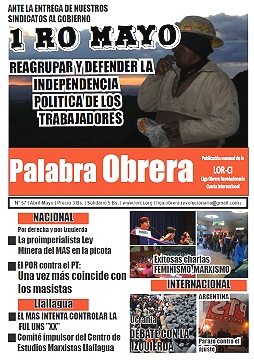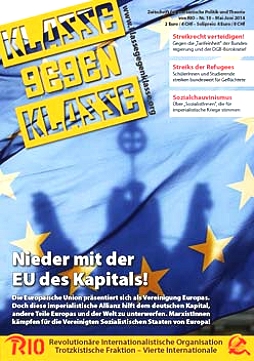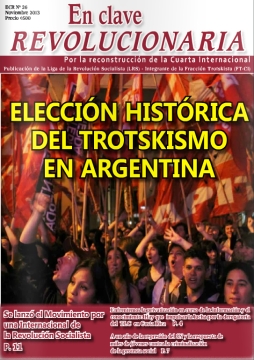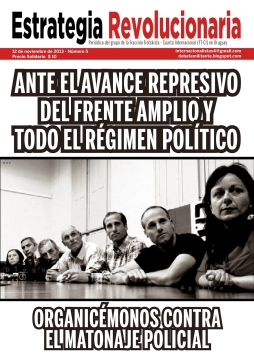Germany
20,000 in Frankfurt against the European Central Bank
09/06/2012
Thursday, May 24, 2012
By Wladek Flakin, RIO, sympathizing section of the Fracción Trotskista in Germany
20,000 people came to Germany’s financial capital, Frankfurt, on May 19, to participate in a mass march against the European Central Bank (ECB) and the austerity policy that the ECB is imposing throughout Europe. In the days preceding the march, two thousand demonstrators had blocked banks and squares in the city, despite a prohibition by the police against all types of demonstrations.
The protest, which was named "Blockupy Frankfurt", was confronted by a wave of repression unprecedented since the 2007 protests against the G8 Summit in Heiligendamm. Already in the preceding weeks, the police wrote to hundreds of people who had been arrested at a protest in Frankfurt in March, to prohibit them from entering the city. On the road to Frankfurt, buses full of activists were stopped and placed under preventive detention. Hundreds of people were arrested and still more were beaten up in the blockades themselves. Altogether, some 5,000 police were deployed, which led some daily papers to say that it had been the police, rather than the "Blockupy" activists, who had brought the entire city to a halt.
Demonstrators from throughout Germany and also from France, Italy and other European countries participated in the march. International solidarity was expressed through Greek flags or in the speeches in other languages. At the same time, the participation of the workers’ movement was quite small (with the exception of French unions like the SUD or the CGT), a result of the union bureaucracy’s policy of limiting itself to "responsible" demands that would not harm German capital. The very day of the march, the metalworkers’ union bureaucracy arrived at an agreement on pay raises in the biggest industrial sector for German imperialism. Given the record profits that German automakers are having, the bureaucracy only obtained a raise of less than 4%, while accepting the consolidation of precarious working conditions. Negotiations of this type create a lot of dissatisfaction among the rank and file of the unions, but no open rejection yet. Increased repression also has a preventive character, preparing the state machine to confront broader movements in the future.
These protests are taking place in the context of growing objections to German imperialism’s policy in the European Union, culminating in the combined pressure from Presidents Hollande and Obama on Merkel to abandon the policy of harsh austerity. For that reason, the contradictions in the "heart of the beast" could have a big international impact. For instance, a week before, Merkel’s conservative party had lost the elections in the country’s biggest province, North Rhine-Westphalia, with their worst result in history. This led to the dismissal of the Minister of the Environment, Röttgen, who had been put in charge of the election campaign in the province.
It is only through struggle against its own imperialism that the working class in Germany can defend its old conquests and win new ones. But the social-democratic party SPD, closely linked to the union bureaucracy, does not present any alternative to Merkel and her austerity policy. In spite of some progressive statements, the reformist party "Die Linke" has also limited itself to supporting social-democratic governments at the provincial level. For that reason, we revolutionary Marxists of the Revolutionary Internationalist Organization (RIO), a sympathizing section of the Fracción Trotskista in Germany, participated in the Frankfurt marches with an anti-imperialist profile, using the slogan of the German Communist Karl Liebknecht, "The main enemy is in one’s own country!"


















